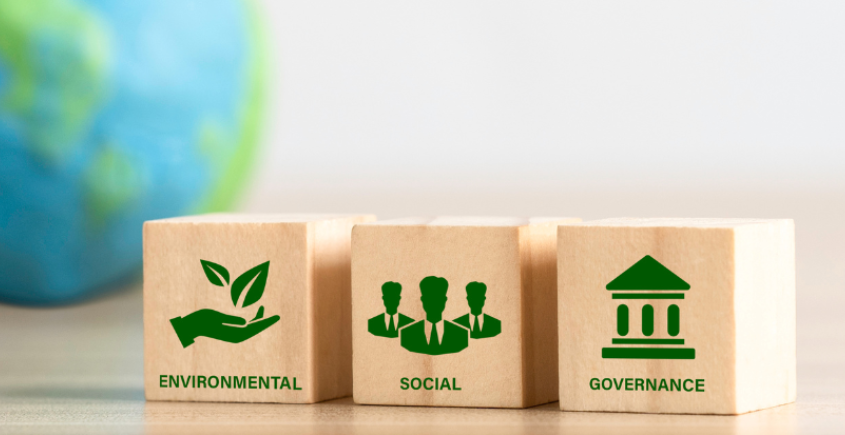What are verifications?
Verifications are independent checks that ensure that environmental and climate assessments – such as life cycle assessments (LCA), carbon footprints (PCF or CCF) and environmental product declarations (EPD) – have been prepared correctly, comprehensibly and in accordance with standards. The quality of the data, methods and results is comprehensively checked and confirmed in order to create transparency and trust with stakeholders and increase credibility.
Why is verification important for companies?
Verified reports strengthen your credibility with customers, partners and investors and improve your position in tenders and supplier evaluations – a decisive factor for competitiveness and market access.
They also support the legally compliant implementation of statutory requirements such as the EU Construction Products Regulation (CPR) and the Corporate Sustainability Reporting Directive (CSRD). For example, the CPR requires verified environmental information (e.g. EPDs) for harmonized construction products, while verified LCA, PCF and CCF data must be part of the annual report under the CSRD. In addition, many sustainability-oriented databases and portals – such as EcoPlatform, ÖKOBAUDAT or CDP Supply Chain – require verified evidence as a prerequisite for participation.
The most important advantages at a glance
Our services
Our verification services are designed to make the process of checking your environmental and climate assessments in accordance with international standards as fast and efficient as possible. We check your documents and data transparently and comprehensibly and provide clear indications of any deviations from standard specifications. In this way, we create the basis for smooth verification without interfering with your internal solutions. We offer customized services that are tailored to the individual requirements of your company and your products:
- Implementation of verifications in accordance with ISO 14040/44, ISO 14067, EN 15804 as well as GHG Protocol and TfS standards
- Review of life cycle assessments (LCA), carbon footprints for products and companies (PCF & CCF) and environmental product declarations (EPD)
- Support in preparing for the assessment
- Review of data and calculation processes as well as all associated evidence and documentation
- Support in complying with legal and market-related requirements
If required, we also help companies to prepare specifically for external verifications or, once an audit has been completed, to implement the results in a targeted manner so that internal processes meet the requirements of the audit standards.
The prerequisite for this is that we do not act as the auditing body and no verifications are planned by us – in this way we guarantee a clear separation of auditing and consulting as well as the greatest possible objectivity.
Unique advantages with PPP
Working with PPP offers unique advantages for your LCA, PCF, CCF and EPD verifications. We not only support you in carrying out the tests, but also in the transparent preparation and comprehensible communication of your test results.
- Fast processing: Our efficient processes enable us to provide you with fast and precise verification results.
- International team: Our global team is on hand to help you with all your questions and challenges.
- Industry expertise: Our team has extensive knowledge of environmental and climate assessments and can draw on many years of experience in various industries.
- Measurable improvements: The verification results provide you with a reliable data basis that you can use to independently identify optimization needs and document progress towards your environmental goals.
- Continuous support: We provide you with long-term support and assist you in implementing further verification requirements.
- Improved corporate image: Reliable and recognized verifications strengthen the trust of customers, investors and partners in your commitment to sustainability.
Free initial consultation
Would you like to find out more about verifications in the area of sustainability? In a free initial consultation, we will analyze your needs together – whether LCA, PCF, CCF or EPD. Our experts will show you how verification according to international standards works and what specific benefits it brings your company.
Patrick Wortner
Partner | MBA and Eng., Dipl.-Ing. (FH)
What is verification in the context of sustainability?
Verifications are independent testing procedures that ensure that your environmental and climate data is collected, calculated and documented in accordance with internationally recognized standards.
Unlike internal audits, verification is carried out by independent, third-party auditors or experts who check system boundaries, data collection/quality, methodology, evaluation and documentation strictly in accordance with standard specifications.
The end result is a comprehensible audit protocol and report that guarantees you and your stakeholders maximum transparency and trust.
What types of verifications are there?
Verifications can be categorized according to their test object and test mode:
By test object
- Product verifications (LCA, PCF, EPD): Testing of individual materials, products or assemblies
- Company verifications (CCF): Holistic CO₂ balances at organizational level (Scope 1-3)
- Industry verifications: Additional requirements, e.g. the TfS guideline in the chemical industry
According to audit mode
- External: Verification by an independent third party (such as PPP), which leads to market-recognized certificates – e.g. a prerequisite for portals such as EcoPlatform or CDP
- Internal: Self-checks without external validation, which are considered purely self-disclosure
What is the role of norms and standards?
Standards such as ISO 14040/44, ISO 14067 and ISO 14064 define binding specifications for methodology, system boundaries and data quality. They ensure that all test objects are assessed according to uniform criteria and that the results are comparable and comprehensible. These standards are supplemented by the GHG Protocol and sector-specific guidelines (e.g. TfS for the chemical industry), which provide practical recommendations for the collection and verification of CO₂ data.
How does a verification process work?
Verification usually begins with a kick-off meeting at which all persons involved introduce themselves and the company to be verified explains its system, the relevant system boundaries and basic documents and, if applicable, the product and its manufacturing process. The evidence and documents required for the audit are jointly determined.
This is followed by a detailed document review by the verifiers. If required, an on-site audit can also be carried out to ensure the completeness and traceability of the information submitted.
Once the verification process has been completed, you will receive a detailed report with all findings, notes and the official verification certificate.
Alternatively, support can be offered for the implementation of improvements and preparation for future audits, although the consultants may not act as auditors.
What verification services does PPP offer?
PPP verifies all important sustainability certificates in accordance with international norms and standards – from the holistic Life Cycle Assessment (LCA) and Product Carbon Footprints (PCF) to Corporate Carbon Footprints (CCF) and Environmental Product Declaration (EPD). Our verification services at a glance:
- LCA according to ISO 14040/44
- PCF according to ISO 14067
- PCF according to GHG Protocol Product Life Cycle Accounting and Reporting Standard
- PCF according to Carbon Footprint Guideline for the Chemical Industry (TfS)
- CCF according to ISO 14064
- CCF according to GHG Protocol Corporate Accounting and Reporting Standard
- CCF according to Carbon Footprint Guideline for the Chemical Industry (TfS)
- EPD according to EN 15804
- EPD according to ISO 14025
For which EPD programs does PPP verify?
PPP works with all leading programs and platforms for the verification of EPDs. These include the following program holders:
- Bau EPD (Austria)
- ift Rosenheim (Germany)
- Kiwa (Germany)
- DAPcons (Spain)
- EPD Norge (Norway)
This broad programme coverage ensures that your environmental product declarations are not only prepared in accordance with EN 15804, but are also recognized in the relevant markets and industries worldwide.
In addition, PPP is an approved auditor for the EcoPlatform and also carries out verifications of LCA, PCF and CCF certificates on behalf of the independent certification company DQS.
Irrespective of its involvement in specific programs and institutions, PPP also supports companies directly in the verification of their sustainability certificates as an independent auditor – be it to meet market requirements, to increase data quality or to strengthen credibility with customers and partners.
Why is PPP the right partner for verifications?
PPP has more than ten years of experience in verifying environmental and climate assessments. As an accredited verifier for renowned program owners and certification companies and as a member of EcoPlatform, we combine the highest level of technical expertise with extensive industry knowledge.
Thanks to our international network of experienced experts, we deliver tested quality at the highest level. Digital workflows ensure efficient inspection times, end-to-end status tracking and full transparency, while dedicated contact persons provide personal support and clear, traceable inspection results.
Thanks to our industry expertise in various sectors, such as chemicals, construction, automotive and packaging, we develop tailor-made verification concepts that fit your company profile perfectly.
Outlook
With the imminent introduction of the Corporate Sustainability Reporting Directive (CSRD), the requirements for verified sustainability data are increasing. In future, companies will not only have to integrate LCA, PCF and CCF data into their reports, but also verify these through independent audits.
At the same time, the EU taxonomy requires companies to align their economic activities with minimum environmental standards and provide corresponding evidence. Furthermore, this verified evidence plays an important role in ESG ratings such as EcoVadis, where you can score additional points with verified LCA, PCF or CCF results. Industry regulations such as the CPR or national green public procurement programs also require verified EPDs for construction products.
The coordination of the different verification formats not only offers regulatory certainty, but also opens up strategic added value: as the PCF and LCA are based on almost identical data and calculation principles and the EPD is based directly on a sound LCA, valuable synergies are created.
Those who rely on an integrated and verified data architecture at an early stage increase the efficiency of data collection and create a reliable basis for a wide range of applications.
By carrying out your PPP verifications at an early stage, you create a database that fulfills regulatory obligations, is convincing in sustainability ratings and gives you a clear advantage in the increasingly regulated competition for public contracts and investor decisions.
Free initial consultation
Would you like to find out more about verifications in the area of sustainability? In a free initial consultation, we will analyze your needs together – whether LCA, PCF, CCF or EPD. Our experts will show you how verification according to international standards works and what specific benefits it brings your company.
Patrick Wortner
Partner | MBA and Eng., Dipl.-Ing. (FH)
Frequently asked questions
What is the difference between verification and validation?
According to ISO/IEC 17029, there is a significant difference between verification and validation, which is primarily reflected in the time reference and the nature of the statement being checked. Verification refers to results that have already been achieved and checks whether past data – such as measured emissions or documented performance – is correct and trustworthy. In contrast, validation is a procedure for evaluating future statements or forecasts. It examines whether planned or expected values – such as savings from a new technology – are plausible, comprehensible and well-founded. Both procedures help to strengthen the credibility of corporate statements and are an important instrument for creating trust.
Which standards apply to the verification of LCAs and PCFs?
Life cycle assessments (LCA) are verified in accordance with ISO 14040/44. Product Carbon Footprints (PCF) generally follow ISO 14067, but can also be verified according to the guidelines of the GHG Protocol Product Life Cycle Accounting and Reporting Standard or the Carbon Footprint Guideline for the Chemical Industry (TfS). Methodologically, it is also possible to create a PCF according to the specifications of ISO 14040/44 – in this case, data collection and system boundaries are recorded identically to the LCA, but focused on the “CO₂ equivalent” indicator, while other environmental impacts are not taken into account. Which standard to use depends on your use case and objective as well as the requirements of your stakeholders.
Is verification mandatory for EPDs?
Yes, environmental product declarations (EPDs) in accordance with EN 15804 must be verified by an independent body in order to be valid. The ISO 14025 standard for type III environmental declarations explicitly stipulates that independent third-party verification must be carried out before an EPD can be published. EN 15804, which applies specifically to construction products, also confirms this requirement. The verifiers must be independent and qualified.
An internal audit is not sufficient, as according to ISO 14025, verification can only be considered independent if the auditor is independent of the organization that prepared the environmental declaration.
An internal audit is therefore not sufficient if the EPD is to be officially published and used, for example, in databases such as ÖKOBAUDAT or for certification systems such as DGNB/LEED.
Who is allowed to verify Life Cycle Assessments?
In principle, environmental and climate assessments can be verified by any independent body that has the necessary technical expertise and experience in the relevant standards. These include certified LCA practitioners, GHG protocol trainers or experts with proven expertise in ISO 14040/44, ISO 14067 and EN 15804. For EPD verifications, many program owners (e.g. IBU, ift Rosenheim, EPD Norge) require formal approval to ensure that auditors work in accordance with the specific program guidelines.
What are the advantages of recognized verification for companies?
A recognized verification:
- increases the credibility of sustainability claims vis-à-vis customers, investors and authorities
- reduces risks of inaccurate data by revealing methodological errors and data gaps
- improves market opportunities in tenders and in international supply chains
- strengthens the corporate image through verified transparency
How does PPP support verification?
As an independent verification body, PPP carries out the standard-compliant verification of your sustainability data:
- Complete review of your documents (reports, data sources, evidence)
- Performance of optional on-site audits to check critical processes
- Preparation of detailed audit reports with clear notes on deviations from standards
- Issuance of recognized certificates upon completion of the verification process
Our digital workflows enable short turnaround times, while personal contacts coordinate the process.
If required, we support companies in preparing for external verifications and implementing the test results in internal processes – always on the condition that we do not act as the testing authority. In this way, the separation of consulting and auditing is maintained and the greatest possible objectivity is ensured.








